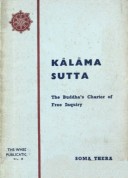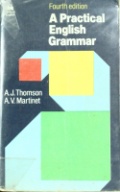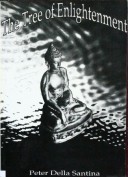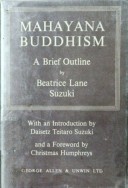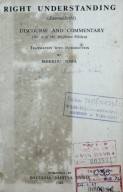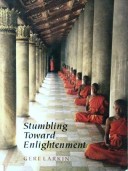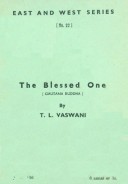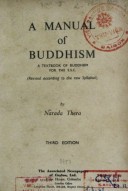Tìm Sách
Sách tiếng Anh-English >> The Dhammapada
Thông tin tra cứu
- Tên sách : The Dhammapada
- Tác giả : K. Sri Dhammananda
- Dịch giả :
- Ngôn ngữ : Anh
- Số trang : 669
- Nhà xuất bản : Sasana Abhiwurdhi Wardhana Society-Malaysia
- Năm xuất bản : 1988
- Phân loại : Sách tiếng Anh-English
- MCB : 12100000011643
- OPAC :
- Tóm tắt :
TABLE OF CONTENTS
The Pali Alphabet Pronunciation of letter
Publishers’ Note
Introduction
Acknowledgement
□ CHAPTER I
YAMAKA VAGGA The Twin Vents
- An Arahant who had lost his eyesight Cakkhupata
- Why cry for the moon? Mattha Kundali
- The old man who retaliated Tissa
- The bitter feud through various existences Kola Yakkhini
- The quarrelsome bhikkhus of Kosambi
- The fate of Mahảkãla and Cũlakãla who became monks
- Who is worthy to receive the yellow robe? Devadatta
- It is difficult to realise the truth Upatissa and Kolita
- Meditating for the sake of a girl Nanda
- A butcher who suffered here and hereafter Cunda
- Happiness here and happiness hereafter Dhammika
- The miserable fate of Devadatta
- The achievement of a young girl Sumanã Devi
- Knowledge is not realisation
Notes…
□ CHAPTER II
APPAMADA VAGGA Heedfulness
- Magandiya’s plot against Queen Samavati
- The voice of a rich man Kumbha Ghosaka
- How a dullard attained Sainthood Cilia Panthaka
- Childish behaviour at a festival
- Kassapa wants to know the number of births and deaths
- The goal of the religious life
- How Magha became Sakka
- The fire of knowledge
- The monk who developed contentment Tissa
Notes
□ CHAPTER III
CITTA VAGGA Mind
- Mèghivạ who could not control his mind
- The lady mind reader Matika Mata
- A wise man should guard his thoughts
- The mind can wander afar Sahgha Rakkhita
- The fickle-minded monk Citta Halla
- The spirits which disturbed the monks
- The monk with a stinking body Pũtigatta Tissa
- Nanda the herdsman
- A mother of two and a father of two Soreyya
Notes
□ CHAPTER IV
PUPPHA VAGGA Flowers
- Concentrate on your body
- The bhikkhu who contemplated on the body as a mirage
- Vidudabha seeks vengeance on the Sakyans
- The lady who was born in Tavatimsa heaven Pali Pujika Kumãri
- The miserly rich man Kosiya
-
Pay no attention to curses
- To whom should one pay respect? Chattapani
- The most devout lady Visàkha
- The question raised by the Venerable Ananda
- Sakka gives alms to Venerable Kassapa
- Godhika attains Sainthood while attempting suicide
- Giving alms to test the wise Sirigutta and Garahadinna
Notes
□ CHAPTER V
BALA VAGGA Fools
- The king who craved ibr another man’s wife Pasenadi
- A disobedient novice monk
- The fate of a stingy rich man Ananda
- How to differentiate the fools
- Fools cannot realise the Dhamrna Udàyi
- The wise can realise the Dhamma
- The leper’s confidence in the Tripic Gem Suppabuddha
- How the Buddha saved an innocent farmer
- The strong devotion of a florist Sumarux
- The young man who molested a nun uppala Vasina
- The ascetic who deceived others Jambuka
- A ghost with a human head and snake’s body
- Be careful in actions
- A lay disciple and a stubborn monk Citta and Sudhamma
- A novice monk who won all hearts Tissa
Notes
□ CHAPTER VI
PANDITA VAGGA The Wise
- A poor man wins spiritual release Rãdha
- Monks not observing the rules of Holy Order
- The stubbornness of Venerable Channa
- A king and his ministers attain Sainthood Maha Kappina
- A young samanera’s achievement Pandita
- Unshaken as a rock Lakuntaka Bhaddiya
- The lady who abused the bhikkhus Kana
- The wise are unaffected by gain or loss
- One must work for his own liberation Dhammika
- Very few in this world can attain the final goal
- From darkness to brightness
Notes
□ CHAPTER VII
ARAHANTA VAGGA The Worthy
- The Buddha and his physician Jivaka
- An Arahant has no attachment Maha Kassapa
- The monk who stored rice Bellatthi Sisa
- The monk and the goddess Anuruddha
- Sakka pays respects to Venerable Maha Kaccayana
- The monk who accused Venerable Sariputta
- The loss of an eye
- Faith alone cannot make one realize Nibbana
- The youngest brother of Sariputta Revata
- A courtesan tempts a monk
Notes
CHAPTER VIII
SAHASSA VAGGA Thousands
- An executioner and his fate Tambadàthika
- The fastest way to attain Arahanthood Bahiya
- The rich girl who married a thief Kundala Kesi
- Gain and loss in gambling
- The way to the Brahma world
- Fire worshipping is not the way
- The brahmin who sacrificed animals
- How the Buddha protected a child Ayu Waddhana
- The miracle of a young novice monk Samkicca
- Venerable Kodanna and the robbers
- Attaining Sainthood while attempting suicide Sappadasa
- Patacara is bereft of all her family
-
The cure for death Kisa Gotami
- The children who neglected their mother Bahu Puttika
Notes
□ CHAPTER IX
PAPA VAGGA Evil
- The great offering of a poor brahmin
- Refrain from sexual abuse Seyyasaka
- A female deva attends to Mahã Kassapa
- Anãtha Pindika and the guardian spirit
- The careless bhikkhu
- The rich man who gave little Bilala Pãdaka
- A journey beset with danger Mahã Dhana
- Kukkuta Mitta the hunter and his family comprehend the Dhamma
- A hunter who was attacked by his own dogs Koka
- The gem polisher who beat an innocent monk
- Nobody can escape from the effects of evil kamma
- King Suppabuddha blocks the Buddha’s path
Notes
□ CHAPTER X
DANDA VAGGA The Rod or Punishment
- The bhikkhus who quarrelled over a temple
- The second quarrel
- The youths who beat a snake
- The monk and the phantom woman Kundadhana
- The ladies who observed precepts for different purposes
- Paying for his evil deeds Lakkhana
- Untimely death of Venerable Moggallana
- The monk with many possessions Bahu Bhandika
- Attaining Nibbảna in the dress of a layman Santati
- The monk and the ragged clothes Pilotika
- Sukha the novice monk
Notes
□ CHAPTER XI
JARA VAGGA Old Age
- Visakha and her drunken companions
- How the Buddha auctioned Sirima’s corpse
- How the Buddha consoled an elderly nun Uttara
- The over-confident monks
- Arahanthood through reflection on the impermanence of beauty Rupanandã
- The queen who regretted over a minor mistake Maliỉka
- The monk who always said the wrong thing Laludayi
- The paean of bliss uttered by the Buddha
- How Mahadhana squandered away his wealth
Notes
□ CHAPTER XII
ATTA VAGGA The Self
- The prince who had no offspring Bodhiraja Kumàra
- The greedy monk Upananda
- The monk who preached without practising Padhãnika Tissa
- The son of a bhikkhuni Kumãra Kassapa
- The untimely death of a devotee Mahãkãla
- The story of Devadatta, the opponent of the Buddha
- The story of schism in the Order
- The jealous monk Kala
- A devotee protected by courtesans Cũlakãla
- The story of a diligent monk Attadatta
Notes
□ CHAPTER XIII
LOKA VAGGA The world
- A bhikkhu who quarrelled with a young girl
- The Buddha visits Kapilavatthu
- Meditation on a mirage
- How the Buddha consoled a sad prince Abhaya
- The monk with a broom Sammunjjani
- A murderer who attained Sainthood Angulimàla
- The weaver-girl who realised the nature of Life
- Thirty bhikkhus who suddenly disappeared
- Cinca Mảnavikả falsely accuses the Buddha
- The almsgiving competition
- The story of Kãla, son of Anãtha Pindika
Notes
□ CHAPTER XIV
BUDDHA VAGGA The Buddha
- The marriage proposal to the Buddha Mãgandiya
- The Buddha’s return from the Tavatimsa Deva Loka
- The king of Nagas and his daughter Erakapatta
- The teaching of the Buddha
- A discontented young bhikkhu
- Seek refuge in the Triple Gem Aggidatta
- The noblest of men
-
What is happiness?
- Honour those worthy of honour
Notes
□ CHAPTER XV
SUKHA VAGGA Happiness
- The dispute over water
- Mira influences the villagers against the Buddha
- Victory produces hatred King Kosala
- The fire of lust
- The Buddha and a hungry man
- Be moderate in eating
- The way to honour the Buddha Tissa
- Sakka nurses the Buddha
Notes
□ CHAPTER XVI
PIYA VAGGA Affection
- Attachment hinders spiritual development
- The Buddha comforts the afflicted
- The Buddha comforts Visakha
- The princes who fought over a courtesan
- Anitthi Gandha Kumãra loses his bride
- From craving springs sorrow
- Kassapa receives baskets of cakes
- The elderly monk who was reborn in the pure abode
- Nandiya attains heavenly glory
Notes
□ CHAPTER XVII
KODHA VAGGA Anger
- The lady who was cured of her skin disease Rohini
- A monk and the tree spirit
- Metta protects Lady Uttara from boiling oil
- The way to heaven
- A brahmin greets the Buddha as his son
- It is the giver that makes the gift Punna
- Nothing too much and too little Atula
- A group of bhikkhus who wore wooden sandals
Notes
□ CHAPTER XVIII
MALA VAGGA Impurities or Taints
- The fate of a butcher and his son
- A brahmin attends to the needs of holy men
- A monk who was born as an insect Tissa
- The monk who made false claims Lãludayi
- A man whose wife committed adultery
- The monk who practised medicine Cula Sãri
- It is not easy to observe precepts
- The envious are not at peace Tissa
- The inattentive lay-disciples
- The rich man Mendaka
- The fault-finding monk Ujjhana Sanni
- The wandering ascetic Subhadda
Notes
□ CHAPTER XIX
DHAMMATTHA VAGGA The Just or Righteous
- The judges who took bribes
- Those who disturb others are not wise
- Knowledge is not realisation Ekudana
- Age is not the criterion
- Pretending to be what they are not
- The monk who liked to argue Hatthaka
- Who is a bhikkhu?
- Silence is not wisdom
- Live up to the name Ariya
- It is not easy to become an Arahant
Notes
□ CHAPTER XX
MAGGA VAGGA The Way or The Path
- The path to perfection
- Meditation on anicca
- Meditation on dukkha
- Meditation on anatta
- Be vigilant and do not be idle
- Guard your word, thought and deed
- Knowledge without realisation is useless Pothila
- The old monks and the old woman
- Meditation on a lotus flower
- A wealthy merchant’s impending death Mahãdhana
- Death comes to all beings Kisã Gotami
- Sons and daughters are no refuge Patacảra
Notes
□ CHAPTER XXI
PAKINNAKA VAGGA Miscellaneous
- The power of the Ratana Sutta
- Hatred is only appeased by love
- Monks who decorated their slippers
- Lakuntaka Bhaddiya killed his ‘parents’
- The boy and the spirits
- No satisfaction in life
- A virtuous one is showered with riches Citta
- Distance is not the problem Cula Subhaddã
- It is better to stay alone Ekavihari
Notes
□ CHAPTER XXII
NIRAYA VAGGA Woeful state
- An evil plot against the Buddha Sundari
- Those who suffered for their evil deeds
- Bhikkhus pretending to have attained perfection
- The man whom women loved
- The obstinate bhikkhu
- The jealous woman who tortured her maid
- The bhikkhus who had to fend for themselves
- The misguided naked ascetics
- Children visit the Buddha
Notes
□ CHAPTER XXIII
NAGA VAGGA The Elephant
- How the Buddha endured abuses Mãgandiya
- One must train oneself
- The father and his ungrateful sons
- On moderation in eating
- The novice monk and the mother spirit Sanu
- An old elephant responds to battle-drums
- An elephant waits upon the Buddha
- Mãra tries to tempt the Buddha
Notes
CHAPTER XXIV
TANHÃ VAGGA Craving
- The golden fish with stinking breath Kapila
- Effect of good and bad deeds
- A man who faced death bravely
- The bonds of craving
- Beauty is but skin deep Khema
- An acrobat who became a Saint Uggasena
- How a young woman influenced a bhikkhu
- How Mara tried to frighten young Rãhula
- It is not easy to appreciate the Dhamma Upaka
- Sakka’s request
- Riches destroy the fool
- Seeds sown on fertile ground yield abundantly Ankura
Notes
□ CHAPTER XXV
BHIKKHU VAGGA The Bhikkhu or The Mendicant
- Bhikkhus should control their senses
- The monk who killed a goose
- A bhikkhu should control his tongue
- The way to respect the Buddha Dhammarama
- A bhikkhu should be contented
- All almsfood is the same
- A devout lady and the thieves
- Meditation on jasmine flowers
- A bhikkhu should be calm Sanlakaya
- Attachment to old clothes Nangala Kula
- Admiration of the Buddha Vakkali
- The novice monk who performed a miracle Sumana
Notes
□ CHAPTER XXVI
BRÃHMANA VAGGA The Brãhmana
- Not all bhikkhus are Arahants
- Tranquillity and Insight
- Where is the ‘Other Shore’?
- Who is a real brahmana?
- Glory of the Buddha
- Not every recluse is a bhikkhu
- No one should strike an Arahant
- Maha Pajapati Gotami asks for ordination
- Honour those worthy of honour
- A brahmana is one who has realized the Dhamma
- It is not easy to mislead the wise
- The Buddha praises Kisa Gotami
- One cannot become a brahmana by birth
- One who has cut off fetters has no fear Uggasena
- Cut the strap of craving
- The Buddha subdues the abusive brothers
- Venerable Sariputta is reviled by his mother
- An Arahant does not cling to sensual pleasures
- The bond-servant who became an Arahant
- The Buddha praises Khema
- Bhikkhu Tissa is accused of practicing exorcism
- A monk who was mistakenly beaten
- The lady and four novices
- Arahants have no mental defilements Maha Panthaka
- Force of habit Pilinda Caccha
- A monk who was accused of theft
- Bhikkhus misunderstand Sariputta
- Bhikkhus misunderstand Moggallana
- Go beyond good and evil Revata
- The youth with a shinning body Candabha
- An unusually long pregnancy Sivali
- A courtesan tempts a monk Sundara Samuddha
- How bhikkhu Jatila attained Arahanthood
- The celestial mansion of Jotika
- The monk who was a dancer Nata Puttaka
- The monk who was a dancer
- Vangisa the skull-tapper
- The wife who became a bhikkuni Dhammadinna
- Anguli Mala and the elephant
- The offering of Devahita
Notes
Index to verses
PUBLISHERS’ NOTE
The committee of Management of the Sasana Abhiwurdhi Wardhana Society, the oldest registered Buddhist society in Malaysia, is planning to celebrate its fast approaching centenary and in commemoration of this great event, it has resolved to undertake the publication of this highly treasured book, the ‘DHAMMAPADA’ for the benefit of all Buddhists.
The founders of this Society were the Sinhalese Buddhists who came to this country from Ceylon (now Sri Lanka) more than a hundred years ago. Since then a few generations of Malaysian Sinhalese have made significant contributions to the development of this nation. The Society has endeavoured to promote religious activities and education and we are justifiably proud of our place in the community here, and equally proud of the contribution we have made to this beautiful country of ours although we make up only a fraction of the population. We would like to express our sincere gratitude to the Government for the many benefits that we now enjoy, especially after the attainment of our National Independence in 1957 and also for the opportunity our members have been given to live in peace and harmony and to continue to enjoy religious freedom as enshrined in the Constitution. It is our fervent hope that we will be able to continue to promote the basic teachings of the Buddha among Buddhists in this country so that we can contribute in our small way towards national unity and development.
We also wish to express our sincere thanks and gratitude to our patron, Ven.Dr.K.Sri. Dhammananda Nayaka Maha Thera for the invaluable services he has rendered for the Buddhist cause in this country and in appreciation thereof we have resolved to bear the entire cost of the publication of this inspiring and valuable book. Ven. Dhammananda who has been the Chief Incumbent Monk of this Buddhist Vihara since 1952 was appointed Chief Sangha Nayaka of Malaysia in 1965 for the Theravada Chapter. He has so graciously participated in expanding the religious activities of the temple and has devoted much of his valuable time to various tasks, all of which generated goodwill, unity and the overall betterment of not only Buddhists of an races but other Malaysians as well. Ever since his arrival here at the invitation of the Society, his untiring efforts and his great personal influence have made the Buddhist Vihara what it is today. Through his efforts the Vihara has developed by leaps and bounds and has emerged as a strong and prestigious religious institution in the country. The Venerable holds many high offices in organizations devoted to religious affairs at national and international levels. In the field of philosophy and religion he is ranked among the highly respected Buddhist intellectuals.
The publication of this book also symbolises the close rapport and friendly co-operation which exists between our Society and the Buddhist Missionary Society which was founded by Venerable Dhammananda 25 years ago and which has only recently celebrated its Silver Jubilee. The Society which has grown tremendously under his able and wise guidance has been responsible for the dissemination of Buddhist literature all over the world. The Venerable himself has written numerous books which present Buddhist teachings in a proper perspective and manner which can be readily understood by modern readers.
The fundamental need of the world today, far deeper than any social, political and economic readjustment is for a spiritual reawakening. Our present age is in a state of spiritual degeneration and is in desperate need of that solace which religion alone can offer. Here is a book to make a forceful impact in such circumstances — readable and enlightening. The DHAMMAPADA contains the utterances of the Buddha and its essential message is timeless. We wish to express our appreciation and gratitude to all those who have selflessly assisted the Venerable in the painstaking and monumental task of producing this edition. Readers will doubtless appreciate the stories, the beautiful illustrations and comprehensive introduction which elucidates the wide scope and meaning of the 423 verses of the DHAMMAPADA.
‘The gift of truth excels all other gifts.’
(Sadhu, sadhu, sadhu.)
M.H. Albert
President,
Săsana Abhiwurdhi Wardhana Society,
Kuala Lumpur. Malaysia.
30th. May 1988
Wesak Day B.E. 2531
 Facebook
Facebook
 Google
Google
 Google+
Google+

